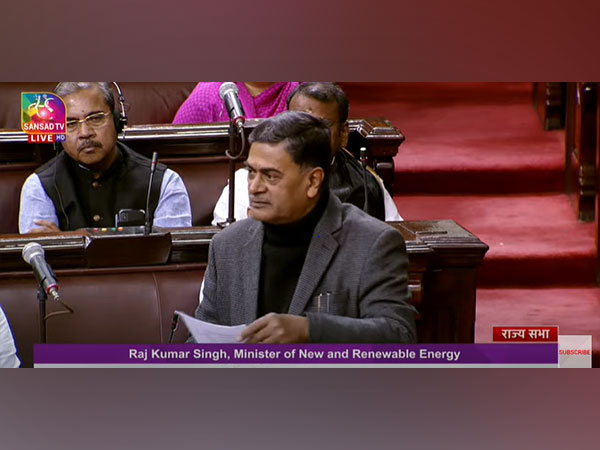The Bill seeks to bring large residential buildings within the fold of the energy conservation regime, enhance the scope of the Energy Conservation Building Code and amend penalty provisions…reports Asian Lite News
The Rajya Sabha on Monday passed the Energy Conservation (Amendment) Bill, 2022 which seeks to empower the central government to specify a carbon credit trading scheme.
The Bill was passed unanimously. Several opposition members demanded that the Bill be sent to a Parliamentary Committee for scrutiny as it dealt with newer concepts such as carbon markets as a measure to meet emission targets and also alleged that the Bill lacked the involvement of states. Replying to the discussion on the bill, Union Minister for Power and New and Renewable Energy Raj Kumar Singh said India has taken several initiatives to promote energy conservation.
“Who said that India cannot do new concepts… We are the leaders of new concepts. We are also a leader in the field of Green Building,” he said.
The Bill, which seeks amendment to the Energy Conservation Act, 2001, seeks to mandate the use of non-fossil sources, including green hydrogen, green ammonia, biomass and ethanol for energy needs and feedstock and establish carbon markets.
The Bill seeks to bring large residential buildings within the fold of the energy conservation regime, enhance the scope of the Energy Conservation Building Code and amend penalty provisions.
The Bill also seeks to increase members in the governing council of the Bureau of Energy Efficiency and empower the state electricity regulatory commissions to make regulations for the smooth discharge of its functions.
As per this Bill draft, designated consumers may be required to meet a proportion of their energy needs from non-fossil sources.
The Energy Conservation Code for buildings will also apply to office and residential buildings with a connected load of 100 kilowatts or above. Energy consumption standards may be specified for vehicles and ships.
Carbon credit trading aims to reduce carbon emissions and address climate change.
The Bill provides a framework for regulating energy consumption and promoting energy efficiency and energy conservation. Energy efficiency means using less energy to perform the same task.
Shiv Sena MP from Maharashtra Priyanka Chaturvedi pointed out that under the Bill, the penalties applicable even on residential buildings will be decided by the Centre but will have to be implemented by the state and local governments. “Not having them as part of this entire discussion mechanism, I think, is faulty, to begin with,” Chaturvedi said.
Talking about the carbon credits scheme proposed in the Bill, the Shiv Sena MP asked the government to specify if the allocation of carbon credits would be done through an auction scheme.
If so, she said, a lot of small companies would also need to participate in the carbon trading scheme if they are emitters and it will be a very expensive affair for them. She suggested that the initial allocation of the carbon credits be done free of cost.
Rashtriya Janata Dal (RJD) MP Manoj Kumar Jha said the Bill relates to areas not very familiar to all the members and in the Indian context while western countries have been deliberating on these issues for longer. He said the Bill should have been referred to a committee for legislative scrutiny.
He sought clarity on many issues like the system being planned to follow for carbon trading, and whether India has identified standard emission factors that can be used to determine the emissions of individual entities.
P Wilson, Dravida Munnetra Kazhagam (DMK) MP from Tamil Nadu, said the Bill proposes the setting up of carbon credit markets but does not clarify how carbon credit certificates will be traded or who will be regulating such trading.
The Lok Sabha has already passed the Bill in August. The Energy Conservation Act, 2001 was also amended in 2010 to address various new factors which emerged with the development of the energy market over a period of time and to provide for more efficient and effective use of energy and its conservation. (ANI)

Leave a Reply